Every day, more and more users are surfing the web on mobile devices with slower internet connections. As a result, page load times have become an increasingly important factor in search engine rankings. Page speed optimization can be complex and confusing to many business owners who don’t know where to start or what steps they need to take in order to achieve faster page loading times that will help their website rank higher.
Page speed optimization is an essential component of website development. If you want to rank higher on Google, increase page speed and optimize your site load time. The first step is to make sure that your page loads quickly enough for consumers; it should never take more than five seconds (or 10, if the page has a lot of media). Page weight matters too – heavy pages can cause browsers to crash or freeze up. With these tips in mind, you’ll be able to create sites that are faster and lighter!
Winning the Page Speed Race: How to Turn Your Clunker of a Website Into a Race Car
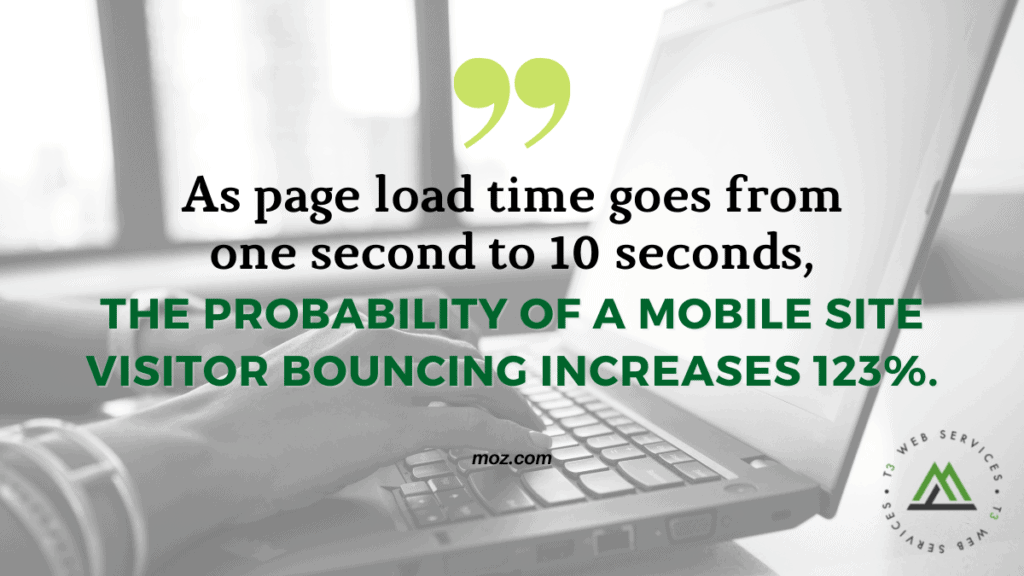

To win the page speed race, you need a proper racing vehicle, which is lightweight. Race cars don’t have radios, cupholders, glove boxes, or really anything at all that isn’t absolutely necessary. Similarly, your website shouldn’t be loaded up with elaborate animations, video backgrounds, enormous images, fancy widgets, excessive plugins, or anything else at all that isn’t absolutely necessary.
In addition to decluttering your site of unnecessary fanciness and excessive plugins, you can also shed website weight by:
- Reducing the number of third-party scripts (code snippets that send or receive data from other websites)
- Switching to a lighter-weight (less code-heavy) theme and reducing the number of fonts used
- Implementing AMP
- Optimizing images
- Compressing and minifying code
- Performing regular database optimizations
On an open-source content management system like WordPress, speed plugins are available that can make a lot of these tasks much easier. WP Rocket and Imagify are two WordPress plugins that can be used together to significantly lighten your website’s weight via image optimization, compression, minification, and a variety of other page speed best practices.
Last, but certainly not least, a lightweight and powerful race car can only go so fast without a trained driver who knows how to navigate the course efficiently.
The “navigate the course” part of this analogy refers to the process of a web browser loading a webpage. Each element of a website is another twist or turn for the browser to navigate as it travels through the code and processes the output of the page.
I’ll switch analogies momentarily to try to explain this more clearly. When remodeling a house, you paint the rooms first before redoing the floors. If you redid the floors first and then painted the rooms, the new floors would get paint on them and you’d have to go back and tend to the floors again later.
When a browser loads a webpage, it goes through a process called (coincidentally) “painting.” Each page is “painted” as the browser receives bits of data from the webpage’s source code. This painting process can either be executed efficiently (i.e. painting walls before refinishing floors), or it can be done in a more chaotic out-of-order fashion that requires several trips back to the beginning of the process to redo or fix or add something that could’ve/should’ve been done earlier in the process.

https://moz.com/blog/winning-page-speed
3 New Ways to Improve Your Facebook Group Engagement
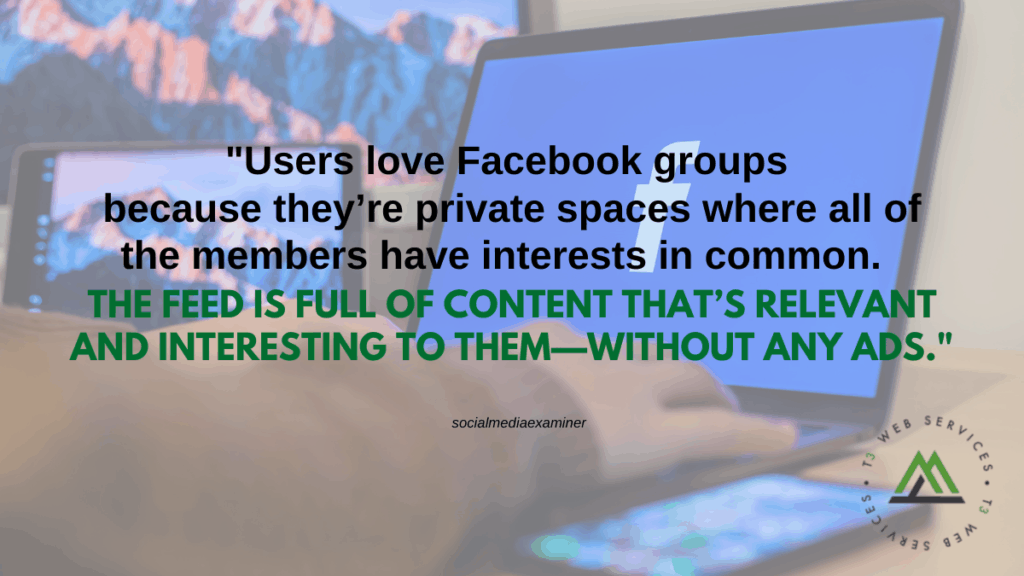

#1: Host Live Q&A Sessions in Your Facebook Group
Q&A Session With Question Posts
The first Q&A option is very simple and any member of any group can do it. Whenever someone writes a post with a question on the group’s Discussion tab, Facebook will automatically spot the post. The poster will be asked if they want to format their post as a question.
Q&A Sessions With Audio Rooms
Members can also start Q&A sessions by hosting an audio room in the group.
Q&A Sessions With Video Live Streams
In addition to audio rooms, you also have the option to host video live streams in your Facebook group. Unlike rooms, these are limited to group admins and moderators. And they offer some very useful features.
Q&A Sessions With Image Cards
The fourth option for hosting live Q&As is the newest and most exciting. The new Q&A feature for groups is basically in text format but Facebook automatically generates image cards as you go along.
#2: Label Expert Members of Your Facebook Group
The next new feature from Facebook is designed to improve the quality of group conversations and hopefully take some of the pressure off admins and moderators.
You can now label group members as experts. Just like a moderator or admin label, this will show up whenever they make a post or comment. Their contribution to the group will be highlighted.
#3: Invite Relevant Experts to Your Facebook Group
Finally, there’s one more feature designed to highlight experts in your Facebook groups. But it’s a little mysterious.
Facebook has announced that it’s testing a way for group admins to search for experts and invite them to join a group. So far, they’re only trying this out for fitness and gaming.
It works like this: Facebook will automatically identify some users as experts in a particular niche such as fitness. These users will be asked to choose specific topics of expertise from a list. Then group owners will be able to search for experts on those topics and personally invite them to join a group.

https://www.socialmediaexaminer.com/3-new-ways-to-improve-your-facebook-group-engagement/
Content Distribution: Everything You Need to Know Right Now
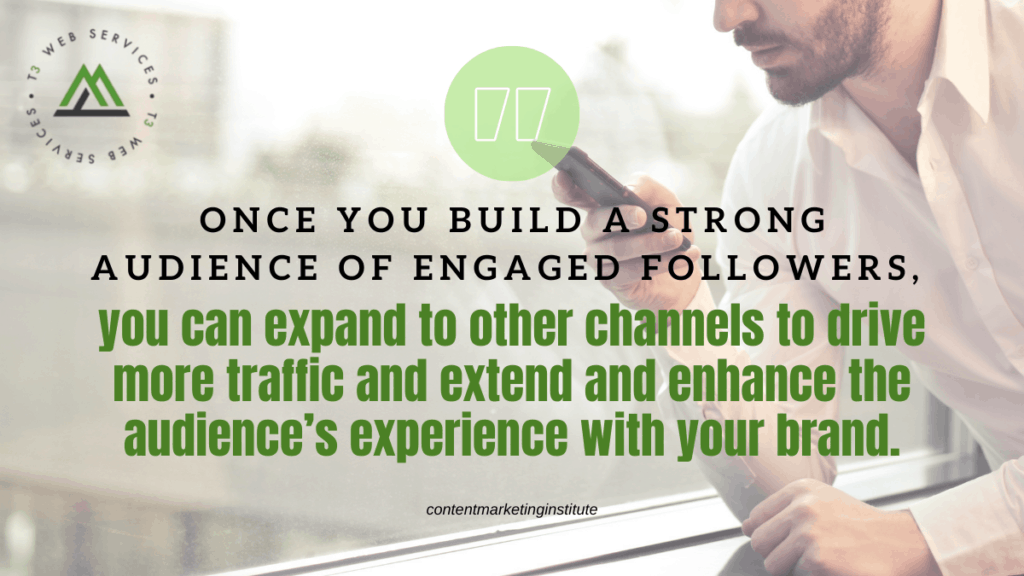

1. Evaluate your distribution options
Many brands mistakenly assume they need to share their content anywhere and everywhere relevant conversations happen. But this passive, spray-and-pray approach to distribution holds little regard for whether the “right” people are reached, whether those communities are receptive to the messages and whether those audience relationships will make a meaningful impact on your business.
Your team’s ability to produce, track, and measure content gets exponentially more complicated with each outpost added to your marketing matrix. It’s important to accurately gauge the relative value of each publishing platform and channel before you publish content there.
2. Develop and document your distribution plan
Determining your most valuable venues is a core step in the content distribution process. Equally (if not more) important is to document your channel plan (or use case) so everybody on your team knows what is expected and can move in the same direction.
Plan for purposeful channel usage
With your shortlist of the most viable channel options, building an actionable distribution plan is straightforward. Kick things off by looking at how each channel matches with the audience, goals, and priorities outlined in your content marketing strategy, and the team resources and content types established under your editorial plan. If a channel doesn’t line up for any reason, consider keeping it off your plan (you can always go back and add it later).
3. Promote your content and amplify its impact
Simply publishing your content and waiting for your ideal audience to magically discover it doesn’t cut it. You need to do a little marketing legwork for your efforts to get found and consumed by the right audiences (at the right times and places), deliver on their expectations, and enable them to spread your brand influence further – no matter where you publish.

https://contentmarketinginstitute.com/2021/09/content-distribution-everything-need-to-know/
8 Best Productivity Tips for Developers and Programmers
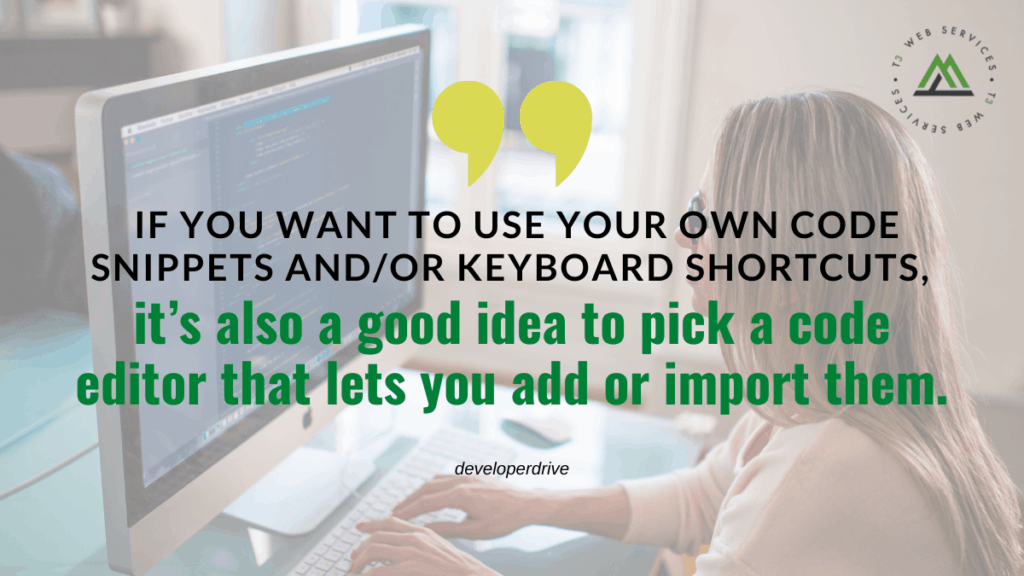

1. FIND THE BEST CODE EDITOR
Developer productivity starts with a good source code editor. Although there are many great options in the market, it’s hard to tell which is the best one — it all depends on your goals and needs. It’s worth trying out different code editors to see which one fits best with your workflow. Here are some important things to take into consideration…
- Which programming language(s) you are using. You need a code editor that offers syntax highlighting for the languages you need (at least as a plugin). Some code editors also come with syntax highlighters for popular technologies such as React, not only for programming languages.
- If your chosen code editor has an adequate theme and plugin ecosystem that provides the functionality you need (for instance, a high contrast theme if you have low vision).
- If you commit your work to a code sharing platform, such as GitHub or Bitbucket, you might find built-in Git functionality useful. For instance, Visual Studio Code lets you directly commit your work to GitHub without leaving the editor.
- If you want to use your own code snippets and/or keyboard shortcuts, it’s also a good idea to pick a code editor that lets you add or import them.
2. START WITH THE MOST DIFFICULT TASK EVERY DAY
It’s easy to get lost in daily tasks and procrastination is also a common habit of developers — especially, if you work as a freelancer and have to manage your own deadlines. Therefore, it frequently happens that you work all day and by the end of the day, you realize that you have barely accomplished anything. You can avoid that if, rather than multitasking, you create a hierarchy of daily tasks and start with the most difficult task every day.
3. TAKE BREAKS REGULARLY
Humans can’t concentrate on the same thing for unlimited time and this is especially true of hard mental work such as programming. You can find different studies about the time limit people can focus on a task without their mind wandering off to something else. For example, this study states that sustained attention is possible for about 45 minutes, while another one mentions 52 consecutive minutes followed by a 17-minute break.
4. SCHEDULE YOUR TASKS IN ADVANCE
With task scheduling, you’ll also need to conduct some experiments and think about what kind of tools you’ll really need. You can use more than one apps for managing tasks for sure, however, there’s also a risk of using too many tools at the same time. In some cases, too much complexity can even lead to a loss of productivity.

Read more: https://www.developerdrive.com/productivity-tips-for-developers-and-programmers/
Google Still Uses Original Page Titles For Search Rankings
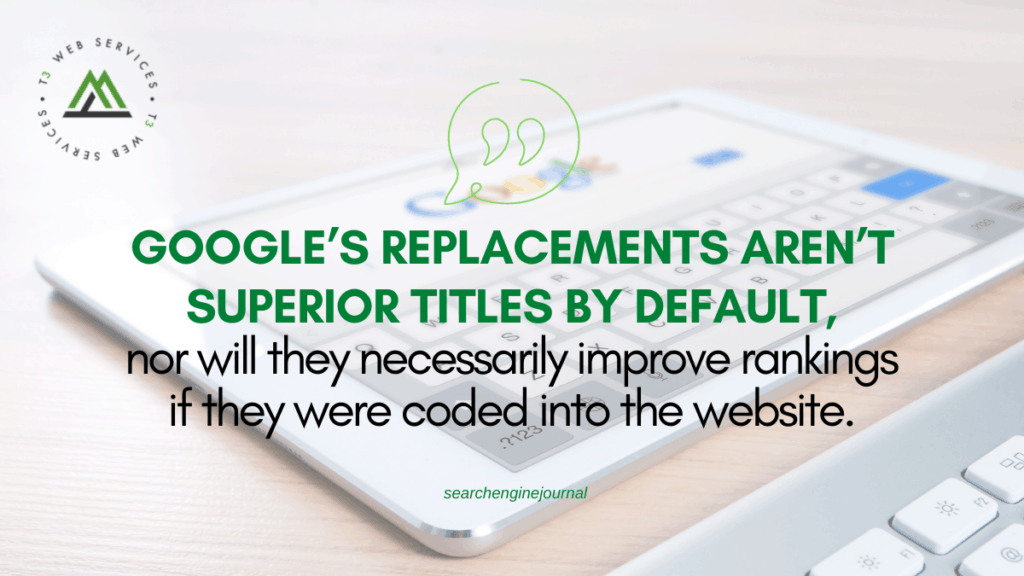

Google’s John Mueller on the Page Title Update
In response to being asked if original titles are relevant for rankings, Mueller confirms that’s currently the case though it could change in the future.
If your original title targets an important keyword, and that keyword isn’t featured in Google’s replacement, rest assured it’s still being used by Google’s search ranking algorithms.
“Yes. At least that’s the way it is at the moment. You never know how these things evolve over time, but at least at the moment it is the case that we continue to use what you have in your title tag, in your title element, as something that we can use for ranking.
It’s not like something that replaces everything for the website, but it is a factor that we use in there. Even if when we display the title for your page we swap out maybe that one keyword that you care about, we would still use that for ranking.”

Responsive Search Ads: 5 Best Practices for Google Ads PPC Search Campaigns
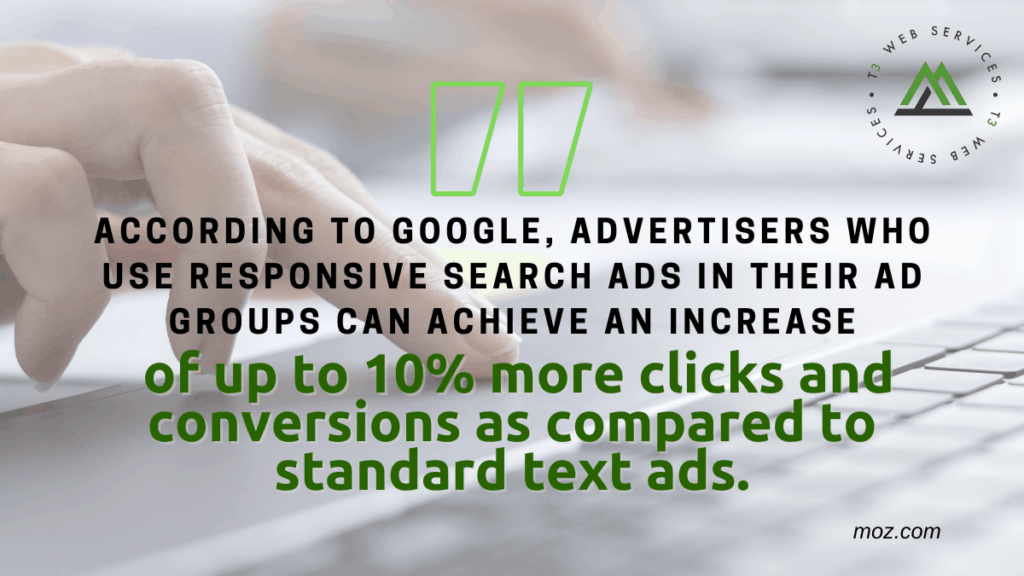

These tips will help you optimize your responsive search ads in your Google Ads search campaigns and increase clicks and conversions.
1. Add at least one responsive search ad per ad group with “good” or “excellent” ad strength
Google recommends adding at least one responsive search ad per ad group. Use the ad strength indicator to make sure the responsive search ad has a “good” or ”excellent” ad strength, as this improves the chances that the ad will show. Remember, the maximum number of enabled responsive search ads allowed per ad group is three.
It’s best to create very specific ad groups based on your products with at least three quality ads, as recommended by Google. This enables Google’s systems to optimize for performance and may result in more clicks.
2. Add several unique headlines and descriptions
The power of the flexible format of responsive search ads lies in having multiple ad combinations and keywords that can match customer search terms. This helps to increase search relevance and reach more customers.
When building your responsive search ads, add as many unique headlines as you can to increase possible ad combinations and improve campaign performance.
3. Use popular content from your existing expanded text ads
Use headlines and descriptions from your existing expanded text ads in the ad group when writing your headlines and descriptions for the responsive search ads. This helps you get more ad combinations with keywords that have already been proven to be successful in your marketing campaign.

Read more: https://moz.com/blog/5-google-ads-ppc-best-practices
Will Google Ever Fix the Big Brand Ranking Advantage of More Backlinks?
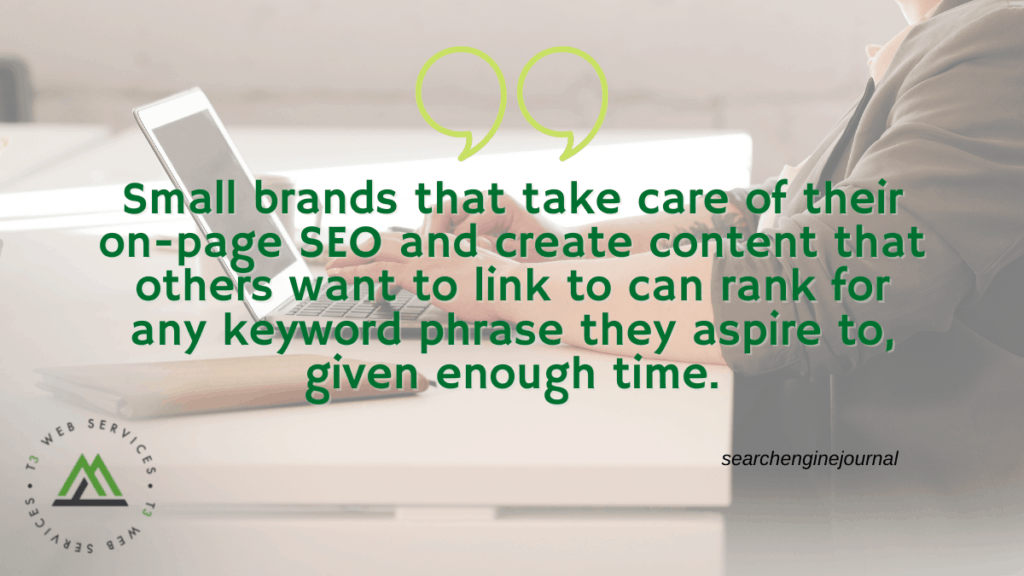

“So, will we see a day when Google gets beyond backlinks as such a key ranking factor and looks at the true value offered by smaller brands?”
For years, SEO professionals have complained that big brands seem to be favored by Google in the organic search results.
The reality is that brands are favored, but not because of any implicit bias by the search engine.
The author of this question hits the nail on the head.
Brands are favored because as established names in their field, they are much more likely to attract a number of quality links to point at their sites.
How Do Small Brands Compete?
We have established that large brands do well in Google.
Many small businesses mistakenly come to the conclusion that they just can’t compete with larger brands in the search engine results.
Nothing could be further from the truth.
In fact, the search engine results are a great place for a smaller, more nimble brand to be the David to a big brand’s Goliath.
It just takes some knowledge and creativity.
First, even in the most competitive search engine results, there are 10 listings on the front page.
A small business may not be able to obtain the top organic spot, but with lots of effort and a bit of luck, small businesses can appear on the front page of very competitive SERPs.

https://www.searchenginejournal.com/google-big-brand-links/418072/


Leave a Reply